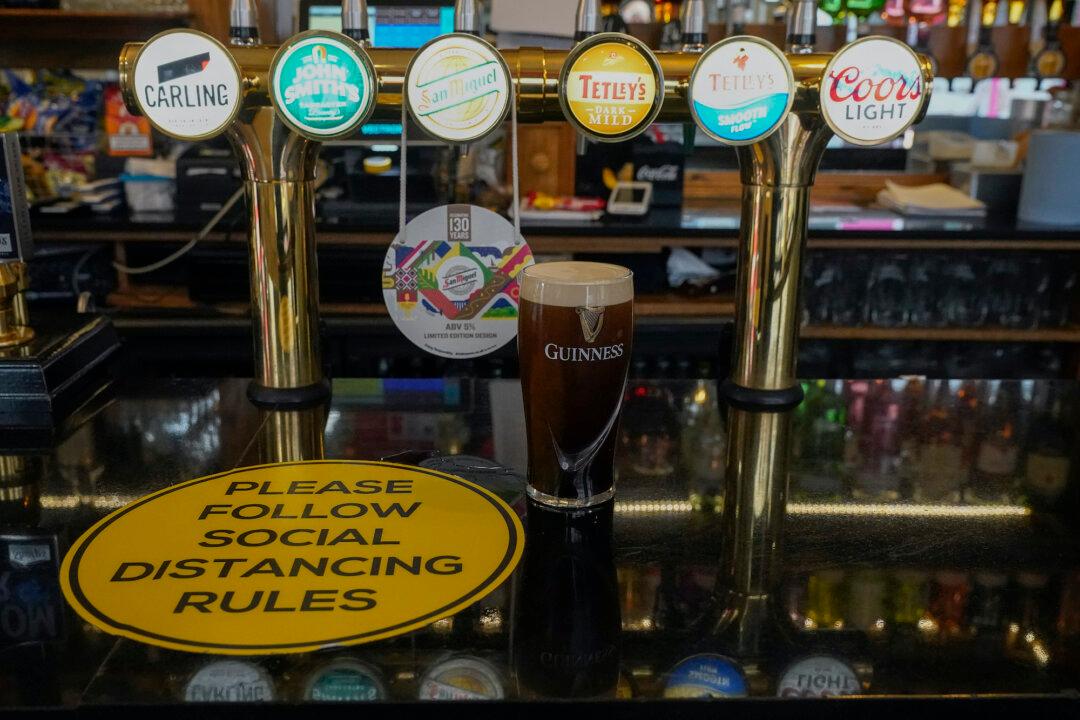Pubs in England in tier 2 areas where people cannot socialise with anyone outside their household have “no support whatsoever,” making them among the sector’s most vulnerable, according to a real ale consumer organisation.
Nik Antona, national chairman of the Campaign for Real Ale (CAMRA), told NTD, an affiliate of The Epoch Times, that unless pubs are forced to close due to being in a tier 3 area, they are currently left without government help, even though their business is impacted by reduced footfall.





